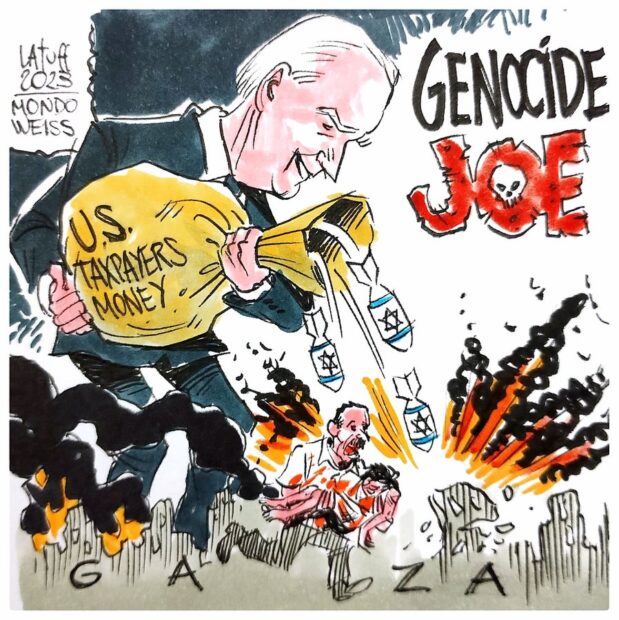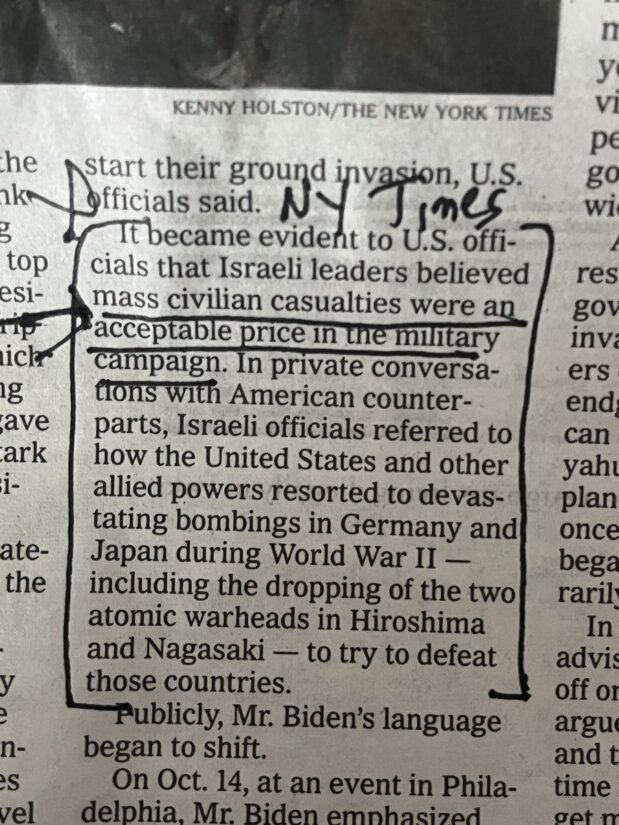U.S. Stands Alone As SOLE Vote Against U.N. Ceasefire Resolution https://t.co/fXxuld0Ykv via @YouTube
— glenn robinson (he/him) (@glncv) December 12, 2023
https://platform.twitter.com/widgets.js
More than 17,000 Palestinians have been killed in two months.
— Barbara Lee (@BarbaraLeeForCA) December 8, 2023
This is a humanitarian disaster.
We need a permanent ceasefire. Now.
https://platform.twitter.com/widgets.js
It’s scary to feel so powerless to stop a televised genocide.
— Peter Daou (@peterdaou) December 9, 2023
https://platform.twitter.com/widgets.js
As you hear conversations about the “lesser of two evils” over the next year, keep in mind that the United States, led by Joe Biden, was the only country in the world that voted against a ceasefire in Gaza last week.
— Alan Dettlaff (@AlanDettlaff) December 10, 2023
https://platform.twitter.com/widgets.js
Please stop the “both sides” narrative in the midst of this #genocide. The two sides are colonizer & colonized, occupier & occupied, oppressor & oppressed, persecutor and persecuted, ethnic cleanser & ethnically cleansed. You want symmetry?? Then end #apartheid & #FreePalestine.
— Craig Mokhiber (@CraigMokhiber) December 10, 2023
https://platform.twitter.com/widgets.js
“The aerial bombing campaign by Israel in Gaza is the most indiscriminate in terms of civilian casualties in recent years, a study published by an Israeli newspaper has found” https://t.co/y2hiQVUebz
— Mehdi Hasan (@mehdirhasan) December 10, 2023
https://platform.twitter.com/widgets.js
Shameful.
— Alexandria Ocasio-Cortez (@AOC) December 10, 2023
The Biden Admin can no longer reconcile their professed concern for Palestinians and human rights while also single-handedly vetoing the UN’s call for ceasefire and sidestepping the entire US Congress to unconditionally back the indiscriminate bombing of Gaza. https://t.co/KFy4YPk5n0
https://platform.twitter.com/widgets.js
#BREAKING United States vetoes Security Council draft resolution that would have demanded an immediate humanitarian ceasefire in Gaza, and immediate and unconditional release of all hostages
— UN News (@UN_News_Centre) December 8, 2023
VOTE
In Favour: 13
Against: 1 (US)
Abstain: 1 (UK) pic.twitter.com/hY0YcJ1JKF



